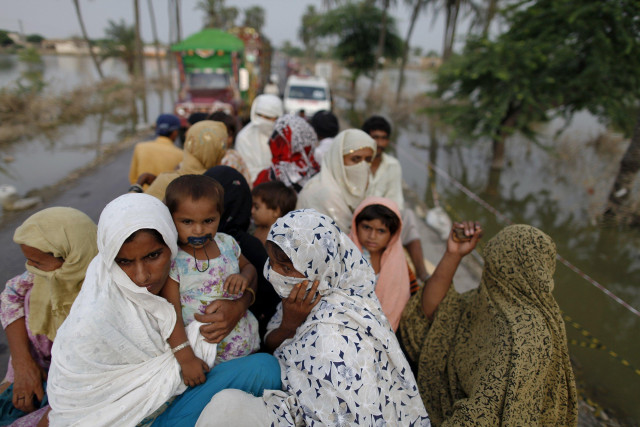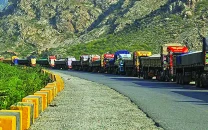UK outlines relief plan for Sindh, Punjab
The UK government plans to bring in more relief goods and essential needs for the flood-hit areas.

The UK government has decided to strengthen their support towards development projects and provide urgently needed assistance in both the provinces. The UK government plans to bring in more relief goods and essential needs for the flood-hit areas.
The latest contribution of the new supplies and the flights coming in is summed up to £2.5 million out of the £64 million already committed by the UK Government in response to the flood crisis in Pakistan. However the supplies will be distributed by Save the Children, IOM, Unicef, and other relief agencies.
Approximately 2,155 hygiene kits per day and 5,300 water containers will be produced per day for 14 days in factories in Lahore and Karachi and will be distributed across Sindh and Punjab. The UK government in collaboration with the International Humanitarian Partnership (IHP) which consists of members from Sweden, Norway, Denmark, Holland, Estonia, and Finland will also set up emergency field operations and set up base camps for 72 relief workers from the UN and NGOs in Sukkur.
There are three more flights being chartered to Pakistan from Nairobi, Beijing, and the East Midlands that will fly in essential needs such as water tanks, 34 million water purification tablets making 340 million litres of safe drinking water; 3,016 shelter kits providing protection from the elements for more than 3,000 families; 12,525 blankets and 4,510 sets of basic cooking utensils. Recently, Five Royal Air Force and four chartered flights have already brought in shelter kits for 12,000 families along with 3,500 tents, 50,000 blankets, 1.7m water purification tablets and 24,000 water containers.
“The floods in Pakistan are extraordinary and demand an extraordinary response. That’s why we are taking these inventive approaches to set up an emergency production line and scouring the globe to fly in such huge quantities of urgently needed items,” said Mitchell addressing the UK House of Commons. “Some parts of southern Pakistan are still under four feet of water, which won’t drain away for some time due to heavy clay in the soil. Unless people can access safe water and sanitation there is a real threat of a public health disaster from waterborne diseases,” added Mitchell.
Published in The Express Tribune, September 9th, 2010.



















COMMENTS
Comments are moderated and generally will be posted if they are on-topic and not abusive.
For more information, please see our Comments FAQ